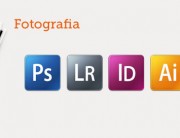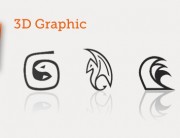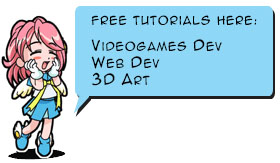Unity3D – Access GameObjects and Components – CSharp
In Unity3D GameObjects are all entities in Unity scenes.
MAIN TOP MENU> GameObject>
– Particle System
– Camera
– GUI Text
– GUI Texture
– 3D Text
– Directional Light
– Point Light
– Spot Light
– Area Light
– Meshes
– etc…
To manage GameObjects in code you have to use the ‘gameObject’ base class.
In Unity3D Components are all ‘modifiers’ you can attach to a Gameobject.
MAIN TOP MENU> Components>
– Mesh
– Effects
– Physics
– Physics 2D
– Navigation
– etc…
Accessing this GameObject
1. Create a Cube, go to Inspector and add the script ‘DestroyBasic.cs’ as component.
DestroyBasic.cs:
using UnityEngine;
using System.Collections;
public class DestroyBasic : MonoBehaviour
{
void Update ()
{
if(Input.GetKey(KeyCode.Space))
{
Destroy(gameObject); // notice the keyword gameObject
}
}
}
Play, press Space to destroy it.
Notice: ‘Destroy(gameObject)’, you can use simple the keyword ‘gameObject’ and Unity3D will destroy the game object attached to the script.
Accessing this Component
1. Create a Cube, go to Inspector and add the scripts:
– ‘OtherScript.cs’ as component
– ‘example.cs’ as component
example.cs:
using UnityEngine;
using System.Collections;
public class example : MonoBehaviour {
void Update() {
// first declare the variable otherScript of type OtherScrip and store the component 'GetComponent'
// type variablename = get <scriptname>
OtherScript otherScript = GetComponent<OtherScript>();
otherScript.DoSomething(); // manipulate the component
}
}
Accessing Other GameObjects – Inspector assignable references
If you set a varible as ‘public’ you can assign it in Inspector, even while you are playing!
using UnityEngine;
using System.Collections;
public class example : MonoBehaviour {
// scope type variablename
public Transform target; // Setup in Inspector
void Update() {
target.Translate(0, 1, 0);
}
}
Below you can drag a Gameobject that contains the ‘OtherScript’ on the target slot in the inspector.
using UnityEngine;
using System.Collections;
public class example : MonoBehaviour {
// scope type variablename
public OtherScript target; // Drag and Drop in Inspector a Gameobject with the script 'OtherScript'
void Update() {
target.foo = 2; // using OtherScript variables
target.DoSomething("Hello"); // usibg OtherScript functions
}
}
Located through the object hierarchy
1. Create the hierarchy:
Forearm (parent)
– Hand (child)
Attach to Forearm example.cs:
using UnityEngine;
using System.Collections;
public class example : MonoBehaviour {
void Example() {
transform.Find("Hand").Translate(0, 1, 0); // find childs with name
}
}
Once you have found the transform in the hierarchy, you can use GetComponent to get to other scripts.
using UnityEngine;
using System.Collections;
public class example : MonoBehaviour {
void Example() {
transform.Find("Hand").GetComponent<OtherScript>().foo = 2;
transform.Find("Hand").GetComponent<OtherScript>().DoSomething("Hello");
transform.Find("Hand").rigidbody.AddForce(0, 10, 0);
}
}
You can loop over all children:
using UnityEngine;
using System.Collections;
public class example : MonoBehaviour {
void Example() {
foreach (Transform child in transform) {
child.Translate(0, 10, 0);
}
}
}
Located by name
using UnityEngine;
using System.Collections;
public class example : MonoBehaviour {
void Start() {
// type varname = find the gameobject SomeGuy
GameObject go = GameObject.Find("SomeGuy"); // find in Project window the object with name 'SomeGuy'
// manipulate SomeGuy
go.transform.Translate(0, 1, 0);
GameObject player = GameObject.FindWithTag("Player");
player.transform.Translate(0, 1, 0);
}
}
Located by tag
To assign a tag go to Inspector> Tag> Add Tag
using UnityEngine;
using System.Collections;
public class example : MonoBehaviour {
void Start() {
// type varname = find a gameobject with tag Player
GameObject player = GameObject.FindWithTag("Player");
// get from Player the component OtherScript
player.GetComponent<OtherScript>().DoSomething();
}
}
Passed as parameters
using UnityEngine;
using System.Collections;
public class example : MonoBehaviour {
// se il trigger entra in contatto con altri oggetti
void OnTriggerStay(Collider other) {
// se gli altri oggetti hanno un rigidbody
if (other.rigidbody)
// aggiungi una forza
other.rigidbody.AddForce(0, 2, 0);
}
}
using UnityEngine;
using System.Collections;
public class example : MonoBehaviour {
// se il trigger entra in contatto con altri oggetti
void OnTriggerStay(Collider other) {
// se gli altri componenti hanno lo script OtherScript
if (other.GetComponent<OtherScript>())
// ottieni OtherScript e fai qualcosa
other.GetComponent<OtherScript>().DoSomething();
}
}
All scripts of one Type
Find any object of one class or script name.
FindObjectOfType
// Search object of class GUITexture
using UnityEngine;
using System.Collections;
public class ExampleClass : MonoBehaviour {
void Start() {
GUITexture texture = FindObjectOfType(typeof(GUITexture));
if (texture)
Debug.Log("GUITexture object found: " + texture.name);
else
Debug.Log("No GUITexture object could be found");
}
}
FindObjectsOfType
Il precedente era singolare ‘FindObjectOfType’, questo è plurale ‘FindObjectsOfType’
// When clicking on the object, it will disable all springs on all
// hinges in the scene
using UnityEngine;
using System.Collections;
public class ExampleClass : MonoBehaviour {
void OnMouseDown() {
HingeJoint[] hinges = FindObjectsOfType(typeof(HingeJoint)) as HingeJoint[];
foreach (HingeJoint hinge in hinges) {
hinge.useSpring = false;
}
}
}
My website: http://www.lucedigitale.com
Ref: http://docs.unity3d.com/412/Documentation/ScriptReference/index.Accessing_Other_Game_Objects.html










